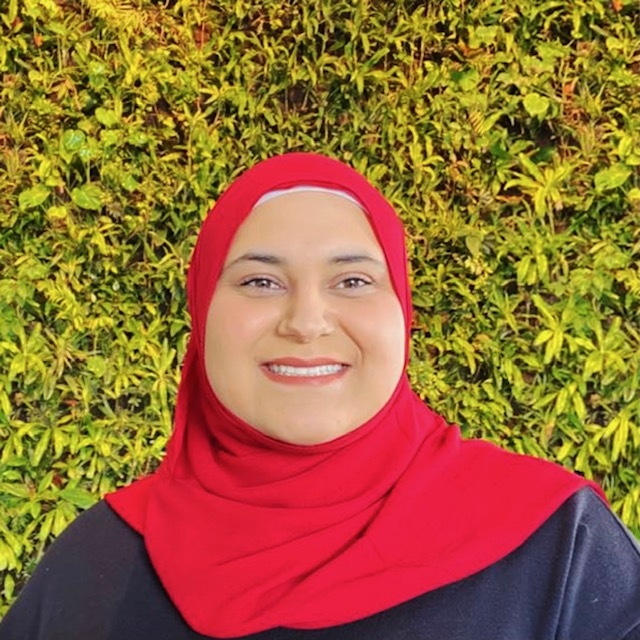Almansour talks about her vision for the Board of Governors
The University of Ottawa and the University of Ottawa Students’ Union (UOSU) are currently holding elections for the Board of Governors. This article will shed light on the candidates participating in the race.
The BOG is responsible for the university’s overall management and governance; it is in charge of finances, policies, and procedures. Two undergraduate students sit on the BOG, they are elected to two-year terms.
In June 2020, Saada Hussen was elected to her second term on the BOG where she will serve till 2022. The current BOG election will determine who joins her on the board; the elected candidate will serve until 2023.
The University of Ottawa’s Sana Almansour participated in a question and answer with the Fulcrum to discuss her platform. For those who wish to get familiar with Almansour, the following is a transcription of the interview. All answers have been edited for length and clarity
The Fulcrum (F): Why are you running for a seat on the BOG?
Sana Almansour (SA): So the main reason why I’m running for the BOG is because of two main things. One of the reasons that I wanted to represent the undergraduate body in the BOG to have conversations about newer, better ways to pay tuition and mental health at the University of Ottawa.
F: Can you talk about previous involvements in student life on campus or relevant experiences that would help you in this role?
SA: So one is that I’ve worked with professors in my research and I’ve been in clubs, such as A [Student Challenge in Engineering and Technology] (ASCENT), which is talking to students about science. I have a vast majority of experience talking to students, or advocating for students, whether it be talking on their behalf to [Natural Sciences and Engineering Research Council of Canada] (NSERC) or the government. Another thing that’s important is that throughout the campaign, and throughout my experience in university, I’ve always been able to take a leadership role. I’m also in French immersion.
F: Can you explain the mandate for the role you are attempting to be elected to in your own words?
SA: An undergraduate student represents the undergraduate body at the BOG and makes sure that they are having the intentions … in mind when making decisions and voting for specific amendments or actions that they want that the university wants to take.
F: How do you intend to facilitate communication between students, the BOG and the Executive Committee?
SA: Within my campaign, I wanted to have regular meetings between the Board of Governors and the UOSU and members of the student body as well as clubs in general. It’s important to have discussions about decisions about where resources are going, why are we paying this much? How are we paying it? To whom are we giving these resources to, and the additional meetings between that and the communication between that would be the most important.
F: What is an area that you think the body you are running for can improve and how do you plan on helping to improve it?
SA: I think it’s full transparency with people. It’s important that the board has transparency to people so that everyone understands and the students understand where their money is going, and where they would want their money to go.
F: How do you aim on addressing the The President’s Advisory Committee on Anti-Racism and Inclusion?
SA: I feel very strongly about this subject and I think it should be a proactive approach. Number one is having a concrete plan on how they will address racism within the university. Number two, it has to be that every entity and executive board approves of the decisions and the regulations that are coming out of this committee, not only just for looks, but for actual concrete plans. I want to have new diversity training made by not only the committee, but clubs and approved by the clubs in the university, as to what needs to be mandated as part of protection training, as part of Faculty Training Department training, all of our training needs to be in both French and English. We want to make sure that we’re not shutting anyone out, we’re working with everyone, but at the same time, we’re making real progress.
F: What are your plans in terms of advocating for mental health?
SA: My proposal is to make a mental health app that would work exactly how any other university app can function. We would be able to get immediate and fast counseling help if someone just needs to vent around midterm times and this would even count as a type of documentation for exams and whatnot, depending on the practitioner’s assessment of the situation. What I will also advocate for, especially as a person in the BOG, is to push more financial resources towards newer mental health programs within the university, which means increasing workers at our health facilities.
F: What are your plans on advocating for lowered tuition?
SA: That’s my one of the number one things I want to do. I want to have a plan where it’s advertised within the university where you would be paying bi-weekly or monthly payments towards the university without interest. To have a method for people to be able to pay and not just have to choose between school and paying or having to drop out for semester because they can’t afford it.
F: How will you work on making the student situation better during COVID-19?
SA: In addition to lowered tuition and the mental health app, it’s assessing what we did wrong, and then creating methods to make it better. At the moment meant because we’re not on campus and I think campus expenses should be going down. I think we should be investing into the student body. More scholarships for students having to pay, more opportunities for internships of jobs, opening Co-op more, these are all aspects that should have been taken into account.
F: If you’re elected, by the end of your terms what’s the one thing you would like to be remembered for?
SA: I think the one thing I would like to be remembered for is that I did something for mental health on campus, and that we have less incidents on campus, because there was a concrete solution. There’s always more we can do and if we don’t do it, then then I think we’re doing a disservice to everyone.
F: Why should students vote for you?
SA: I think students should vote for me, because it’s changed for all of us. It’s something that all of us have been speaking about: lower tuition [and] mental health. We’ve all taken part in these conversations and now it’s a concrete solution for all of us. It’s a way to make a change. So I think voting is something that we should do to make a change in our own lives on campus. I would be advocating for all of us throughout my whole mandate throughout my whole term.





